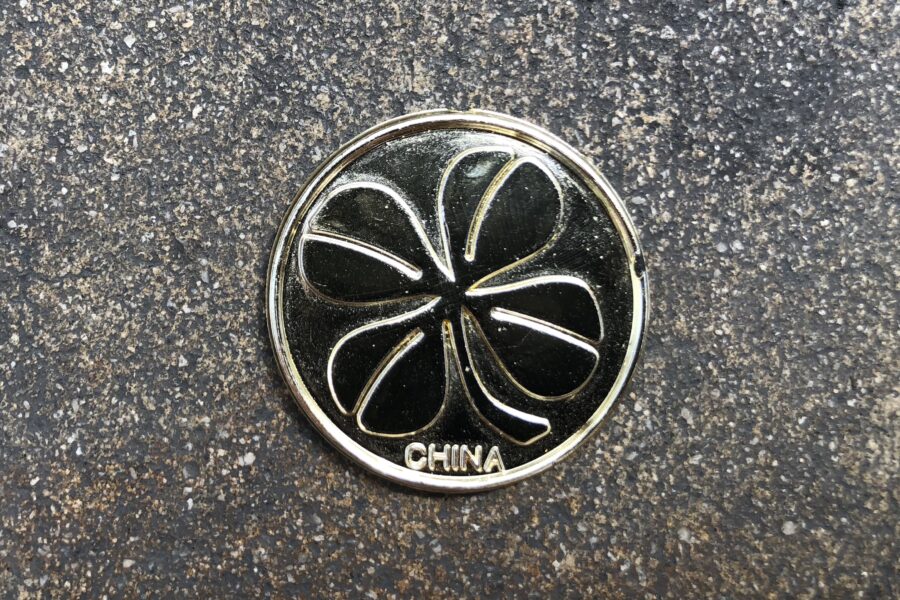Another migraine shreds my nervous system. They’ve been showing up more frequently the past couple of years. The assault starts in my shoulder, moves to my neck, then travels to my head where it squats for three days (always three days) before mercifully moving on. My family and close friends who know the pattern roll their eyes and plead, do something, already. I whisper back that I will. And they nod, uh-huh, knowing that I won’t. Knowing that once the pain is gone, I’ll forget how it holds me hostage every month or so, rendering me weak, desperate, and full of new promises that I’ll take care of myself.
Remarkably, the pounding is not what’s on my mind. What’s rolling around my compromised head, what I’ve been obsessively thinking about over the past week, is the idea of luck. How most sources define the word as good (or bad) fortune brought about by chance and not through one’s actions. And yet, for so many people who’ve achieved great success and experienced good fortune, luck, they believe, waits in plain view wanting to be discovered, hoping that we’ll slow down, open our eyes, grab on tight and, for the love of Pete, act on it. Luck, they attest, only requires the catalyst of our energy and attention to manifest. Which, if true, means that no matter your race, gender, circumstance or even age, every last one of us has the potential to be lucky; every last one of us can create good fortune in our lives.
When I try to pinpoint my windfalls, those one-off, exceptional moments that change the course of your life, the past all blurs together. Sure there have been countless synchronistic moments (like the primo parking spot I got at Whole Foods the other day), but nothing big or obvious comes to mind–no massive inheritance, script sale, crucial introduction, or million-dollar idea. Unlike JK Rowling who confesses that the concept for Harry Potter dropped into her head while waiting for a train to King’s Cross station, that kind of unexpected jackpot has alluded me. Okay, yes, she did write for five years straight and experience chronic rejection before selling those 500 million copies. And maybe, had she given up three years in and moved on to write something else or decided on another career altogether, we wouldn’t even know the name Rowling (or Harry, Ron, and Hermione!). Perhaps at the time, the inspiration for Hogwarts was more of a good idea than good luck, and the label “lucky” only applicable in hindsight. Maybe back then, all that happened was that a good idea found a hard-working writer who had enough grit and tenacity to see it through.
My son is lucky. Or so his birth chart says. At the time he was born the planets aligned in a way considered by astrologers to be highly auspicious. “He is a fortunate boy,” they said. “Money and success will come easy for him.” Upon hearing those words, I breathed a giant sigh of relief, grateful that at least one of my kids will walk an easy path (and one that is paved with gold.) When he was eighteen-months-old, he suddenly started banging his head against the wall, like that classic get it through your thick skull bit in a comedy sketch. Routinely, he would grow frustrated by something and in desperation turn his noggin on a blunt, obtuse object. I would race to stop him from knocking himself senseless, but I wasn’t always fast enough, and for almost a year he walked around with a bruised and tender forehead. As he became verbal, the banging stopped, but only to be replaced by other challenges brought on by his speedy brain, ADHD, and visual disability. As a result, his childhood required endless hours of occupational therapy, educational therapy and now visual therapy. And while his big brain and adaptability allow him to successfully mainstream and even place in accelerated programs, the grind is endless and exhausting. As a result, he possesses spectacular resilience. He exudes a warm and gooey heart. He is color-blind, gender-blind, fearless, joyful, and indifferent to people pleasing. That last quality alone makes me think he is luckier than most.
So who’s to say what luck means or from where it comes. Does luck present itself more readily to those who persevere? James Dyson, the founder and sole owner of Dyson (valued in the billions), faced bankruptcy in his early 40s while plugging away at his revolutionary vacuum. Despite previous failures and having a family of four to support, he mortgaged his house to help underwrite his invention. The risk was huge, and Dyson was middle-aged. But here’s what he says about the journey: “I do believe that you create your own luck. Because luck is around . . . And when you feel like giving up, it’s precisely the point everybody else gives up. So it’s at that point that you must put in the extra effort. You do that, and then success is literally just around the corner.”
Personally, I think luck never shows itself until after the fact, when the event or moment that carried us–from where we were to where we wanted to be–finally stands out in relief. Who knows, maybe JK Rowling’s lucky moment wasn’t the story idea at all, but the circumstances that led her to take the train in the first place. Maybe for Dyson, a demand from the bank led him to knock on one more door. Maybe my son’s ADHD will turn out to be a giant gift horse and allow him to move through his life with greater ease. And maybe these nagging, constant migraines have a hidden silver lining. That might be a stretch, but you never know. I’ll have to wait and see.







